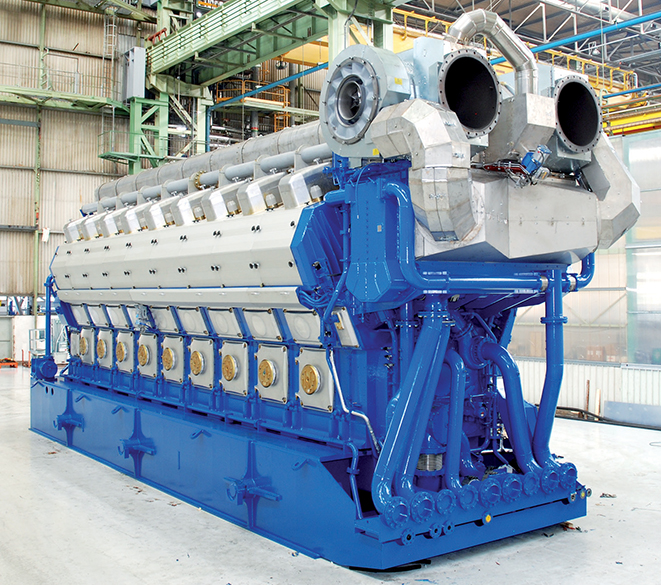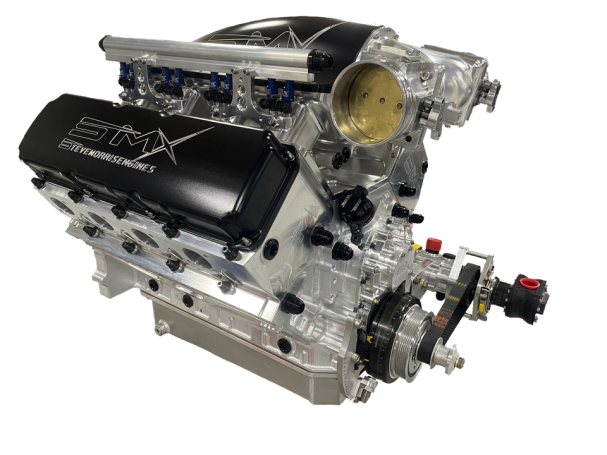Check Out a Wide Variety of Engines for every single Lorry and Purpose
The automobile landscape is significantly intricate, with a varied range of engine types created to fulfill certain efficiency and efficiency needs throughout numerous lorry categories. From the high-performance engines that power cars to the fuel-efficient alternatives customized for everyday travelling, the selections are vast and varied. Additionally, sturdy engines serve the demands of job automobiles, while eco-friendly options are getting grip in the quest of sustainable transport. Understanding these distinctions is vital for making notified decisions, especially as emerging technologies continue to form the future of vehicle design. What ramifications might these developments hold for producers and consumers alike?
Types of Automotive Engines
Automotive engines can be classified right into a number of distinct types, each designed to fulfill certain performance and effectiveness requirements. One of the most common groups include interior combustion engines, electric engines, and crossbreed systems.

Electric engines, on the various other hand, operate electrical power kept in batteries, supplying instant torque and zero emissions. These engines are ending up being significantly popular as a result of developments in battery modern technology and the growing focus on sustainability.
Hybrid systems integrate both inner combustion and electric engines, making it possible for automobiles to maximize fuel effectiveness and lower discharges by seamlessly changing in between power resources. Each engine type provides its benefits and disadvantages, influencing aspects such as lorry design, intended usage, and market need. When picking the appropriate engine for their details requirements., comprehending these distinctions is essential for makers and customers alike.
Efficiency Engines for Sports Cars
Efficiency engines for cars are specifically engineered to deliver improved rate, dexterity, and power, setting them besides standard automotive engines. These engines typically make use of innovative modern technologies such as turbocharging, turbo charging, and variable shutoff timing to take full advantage of effectiveness and responsiveness.
Normally, efficiency engines are developed with greater compression ratios, which permit greater power extraction from fuel. This leads to impressive horse power and torque figures, making it possible for fast velocity and higher leading rates. Furthermore, the light-weight products made use of in these engines, such as light weight aluminum and carbon fiber, add to reduced total lorry weight, boosting handling and ability to move.
Engine setups like V6, V8, and even hybrid systems are usual in efficiency sports autos, each offering distinct benefits in regards to power shipment and driving dynamics. The adjusting of these engines is also critical; several makers optimize the engine administration systems to offer an exhilarating driving experience, often including sport modes that change throttle action and equipment shifts.
Reliable Engines for Daily Commuters
In the world of daily travelling, efficient engines play a crucial duty in optimizing gas economy and decreasing discharges while providing trustworthy performance. As metropolitan populaces grow and ecological problems heighten, the need for cars outfitted with effective powertrains has actually risen.
Modern engines made for daily travelers typically incorporate innovations such as turbocharging, straight gas injection, and crossbreed systems. Turbocharging boosts engine efficiency forcibly even more air into the combustion chamber, permitting smaller sized, lighter engines that do not compromise power output. Direct gas shot boosts gas atomization, leading to much better burning and raised performance.
Crossbreed engines, integrating interior combustion with electric power, additional increase gas economic situation, particularly in stop-and-go web traffic, where conventional engines can experience inefficiencies. Electric electric motors aid throughout velocity and can run separately at reduced speeds, decreasing overall fuel consumption.
Furthermore, improvements in engine monitoring systems and light-weight products add substantially to effective engine style. By concentrating on performance, sturdiness, and ecological sustainability, makers remain to provide engines that not only meet the needs of daily travelling but also align with global initiatives to minimize carbon impacts.
Heavy-Duty Engines for Work Vehicles
Sturdy engines for job vehicles are routinely crafted to provide exceptional torque and integrity under requiring conditions. These engines are designed to execute in atmospheres where conventional engines may fail, such as building and construction sites, logging operations, and farming settings. The key focus of heavy-duty engines is their capability to generate high degrees of power while preserving resilience over expanded periods of procedure.
Normally, heavy-duty engines make use of advanced products and robust building and construction methods to withstand the rigors of hefty workloads. Attributes such as enhanced cyndrical tube blocks, improved cooling systems, and progressed fuel injection innovations add to their performance. These engines usually run at lower RPMs, which aids to optimize gas performance while offering the needed power for hauling and carrying.
In enhancement to mechanical robustness, durable engines are usually outfitted with sophisticated digital control devices (ECUs) that manage performance, exhausts, and diagnostics. This integration enables for much better surveillance and maintenance, making sure that work vehicles stay functional and efficient.
Eventually, heavy-duty engines are an important element in the productivity of various sectors, supplying the needed power and dependability to tackle the most difficult of jobs.
Eco-Friendly Engine Options
The expanding focus on sustainability has actually brought about the development of environment-friendly engine alternatives that focus on minimized emissions and improved fuel efficiency. These engines are designed to decrease the environmental impact of automobiles while still providing the performance and reliability expected by customers.
Among the most noteworthy green alternatives are hybrid and electrical engines. Hybrid engines integrate standard internal combustion engines with electrical propulsion, enabling minimized fuel consumption and reduced greenhouse gas exhausts. Electric engines, on the other hand, operate totally on battery power, generating no tailpipe emissions and contributing to cleaner air quality.
Another appealing advancement is the improvement of biofuel engines, which utilize eco-friendly resources, such as plant products, to power cars (Engines For Africa). her explanation By utilizing biofuels, these engines can minimize dependency on nonrenewable fuel sources and lower total carbon footprints

As this contact form the automotive sector advances, green engine choices will play a vital role in driving the shift in the direction of even more lasting transport services.
Conclusion
From high-performance engines that enhance sports auto abilities to reliable versions prioritizing gas economy for daily travelers, each kind serves a particular feature. Sturdy engines provide to durable work automobiles, while eco-friendly options, such as electric and biofuel engines, promote lasting transport.
